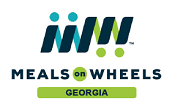
Keeping Georgia’s Seniors Safe during COVID-19 Pandemic
We have compiled a list of resources to help you stay informed and are sharing some of the innovative ways in which our member organizations


The $925 million that the HEROES Act would provide to Older Americans Act (OAA) programs through this legislation – including $500 million designated specifically for nutrition services – is desperately needed as local nutrition providers on the front lines of the pandemic continue to face a sustained surge in demand from our nation’s most vulnerable and isolated seniors for life-sustaining meals and other support services.
As our nation continues to push forward through uncertain territory, we urge Congress to come together to protect those in greatest need by including the provisions contained within the HEROES Act in the next COVID-19 relief package. Time is of the essence
SENATE PASSES BILL TO FUND GOVERNMENT THROUGH DECEMBER 11
HOUSE MOVES FORWARD WITH UPDATED EMERGENCY COVID-19 BILL CONTAINING INCREASED FUNDING FOR SENIOR NUTRITION
By a bipartisan 84-10 vote this evening, the Senate passed H.R. 8337, the Continuing Appropriations Act, 2021 and Other Extensions Act – a continuing resolution (CR) approved in the House of Representatives last week. This 10-week stopgap funding bill is expected to be signed into law, successfully avoiding a lapse in federal funding and a government shutdown as the new fiscal year begins tomorrow, October 1. Federal agencies and activities – like the Administration for Community Living (ACL), Older Americans Act (OAA) programs and other key funding streams for Meals on Wheels – can now continue operating under their current Fiscal Year (FY) 2020-enacted funding levels until December 11, providing more time for Congress to complete the annual appropriations process and finalize spending for FY 2021.
This CR has also extended a number of much-needed programs and waivers totaling approximately $8 billion through the end of FY 2021, including the Supplemental Nutrition Assistance Program (SNAP), the Pandemic Electronic Benefits Transfer (P-EBT) and the Commodity Supplemental Food Program (CSFP) – all of which have provided vital nutrition assistance to individuals and families throughout COVID-19. Further, this short-term spending bill extends several healthcare programs that had been set to expire in November and which are important to many of the seniors you serve, such as the Medicaid Money Follows the Person (MFP) and spousal impoverishment protections.
COVID-19 RELIEF ACTION
On the other side of Capitol Hill, House Democrats introduced an updated $2.2 trillion version of the Health and Economic Recovery Omnibus Emergency Solutions (HEROES) Act – the COVID-19 relief bill it passed in May – in order to ramp up stalled negotiations with the Senate and Administration. We’re thrilled to share that this updated version includes $925 million in emergency funding for OAA programs, with $500 million designated specifically for nutrition services. Read our joint press statement with the National Association of Nutrition and Aging Services Programs (NANASP) about the updated HEROES Act here.
WHAT IS IN THE HEROES ACT 2.0?
Our initial review of the updated HEROES Act shows that it includes a number of key priorities for which our network has been advocating. Below is a closer look at several components of the relief package that would benefit your programs and the Aging Network on top of the $750 million for OAA nutrition services already made available through the Families First Coronavirus Response (FFCR) and Coronavirus Aid, Relief, and Economic Security (CARES) Acts earlier this year:
• $925 million for OAA funding, including:
o $500 million for OAA Congregate, Home-Delivered and Native American Nutrition Services
o $200 million for Supportive Services (Title III-B)
o $44 million for Preventative Services (Title III-D)
o $150 million for Caregiver Services (Title III-E)
• Extensions of OAA Nutrition Program flexibilities first established through earlier COVID-19 relief packages, and improvements made to ensure programs can apply these flexibilities as long as they continue to use emergency funds, including:
o Up to 100% transfer authority allowed between congregate and home-delivered meal programs
o Adjustments to dietary guidelines for meals
o An expanded definition of “homebound” to include older adults who are confined to their homes due to COVID-19
• $436 billion in emergency appropriations for targeted state and local assistance
• Extension of, and modifications to, the Paycheck Protection Program (PPP) that would provide added flexibility and eligibility for nonprofit organizations to participate in these forgivable loans, and set aside 30% of PPP funds specifically for nonprofits
• Temporary adjustments to SNAP, including a 15% benefits increase, and the suspension of certain eligibility requirements for the program through FY 2021
As we further analyze and review this bill and as it moves through the negotiation process, we will keep you informed on how it could impact the senior nutrition network and the seniors you serve.
QUESTIONS?
As always, please let us know if you have any questions about any of the material covered in this Washington Update. For the latest advocacy and policy news, follow Chief Membership and Advocacy Officer Erika Kelly on Twitter at @NoSeniorHungry.
Katie Jantzi, Director of Government Affairs
[email protected] or 571-339-1622
Katherine Nick, Senior Manager of Public Policy and Advocacy
[email protected] or 571-339-1621
Membership Department
[email protected] or 571-339-1609

We have compiled a list of resources to help you stay informed and are sharing some of the innovative ways in which our member organizations

Amid the COVID-19 crisis, it is paramount that our leaders in Washington work expediently to reach a bipartisan compromise that will alleviate some of the

Below was taken from Red&Black article entitled Photos: “ACCA combats seniors’ social isolation in COVID-19” — dated July 31, 2020 “Throughout COVID-19, the Athens Community
